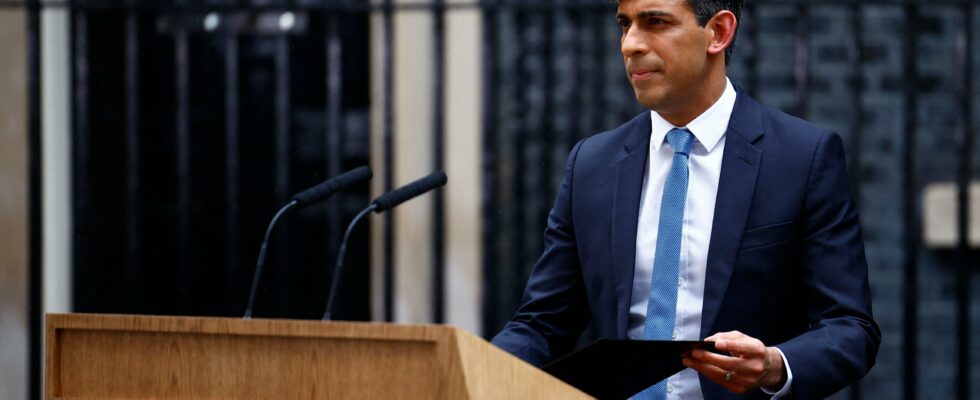Are the weeks now numbered for Rishi Sunak at the head of the United Kingdom? The British Prime Minister announced on Wednesday that legislative elections would be held on July 4, ending months of suspense over the date of this election. “Earlier today, I spoke with His Majesty the King to request the dissolution of Parliament. The King has granted this request and legislative elections will be held on July 4,” the 44-year-old conservative leader said, speaking in the rain from the steps of 10 Downing Street.
While the Labor opposition is largely favored for these elections, Rishi Sunak has just over six weeks left to reverse the trend.
The Prime Minister has so far limited himself to mentioning elections “in the second half” of 2024. But faced with disastrous polls for the “Tories”, the pressure was growing on the head of government to to call voters to the polls, or at least to clarify its intentions, when the vote could theoretically be held until January 2025.
A series of good news on the economic level – return of growth and curbing of inflation – would have ended up convincing him to launch into elections described as “quasi-anticipated” by the British press. “I hope that the work I have done since becoming Prime Minister shows that we have a plan and that we are ready to take the bold steps necessary for our country to flourish,” he said. declared this Wednesday in front of journalists.
Towards an overwhelming majority for Labor?
After fourteen years of conservative power marked by the Brexit referendum then the succession of five Prime Ministers in eight years, the British seem determined to turn the page and send Labor leader Keir Starmer, a 61-year-old former lawyer, to 10 Downing Street .
The polls give Labour, positioned on the centre-left, around 45% of voting intentions, far ahead of the Conservatives, relegated to between 20% and 25%, and the anti-immigration and anti-climate policy party Reform UK (12%). . With a simple first-past-the-post voting system in the UK’s 650 constituencies, such results would translate into a large majority for Labour.
According to the British newspaper The Guardian, these elections could lead Labor to obtain a little more than 470 seats, while the majority mark stands at 326 deputies. For their part, the Conservatives would lose nearly 300 seats, and would only keep a little more than 80 elected officials. Enough to see them seriously followed by the Liberal Democrats, who could pocket nearly 50 seats for their part. The rescue mission now begins for the British Prime Minister.
